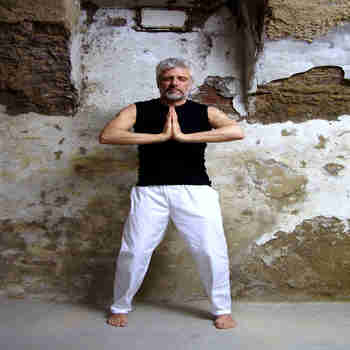The 8 Potential Dangers Of Meditation & Yoga
By: Yogi Auxiliary Inc.
Date: May 15, 2017
Website: http://www.yogiaux.com
The 8 Potential The 8 Potential The 8 Potential The 8 Potential The 8 Potential The 8 Potential The 8 Potential The 8 Potential The 8 Potential The 8 Potential DangeDange DangeDangers Of Meditation & rs Of Meditation & rs Of Meditation & rs Of Meditation & rs Of Meditation & rs Of Meditation & rs Of Meditation & rs Of Meditation & rs Of Meditation & rs Of Meditation & rs Of Meditation & YogaYoga
The 8 Potential Dangers Of Meditation & Yoga
Meditation is one of the most popular of all modern religious practices. Meditation techniques assumed a prominent place in large numbers of physical, spiritual, and health therapies where relaxation is a primary goal. Meditation is a practice in which an individual trains the mind or induces a mode of consciousness, either to realize some benefit or for the mind to simply acknowledge its content without becoming identified with that content, or as an end in itself. So with that being said, the danger doesn't lie in the practice of meditation, but rather what your focus is.
If you meditate on your body and looks for example, which a very large population does, you will find people consumed with how they appear. It becomes the embodiment of their conciseness. Dangerous result is the dissatisfaction with their appearance and often leading to self-mutilation.
Dangers Of Meditation & Yoga
Below is a list of potential dangers associated with meditation. Understand that both the severity and number of "dangers" experienced is subject to significant individual variation.
Delusions
Delusions are considered false beliefs that have no basis in reality and are often experienced by meditators. The basis for these delusions may be neural alterations as a result of excess inward focus and a lack of balance with external reality. If you think that you've been sent on a mission from a deity or that your meditation is changing the "collective unconscious" - you may be dangerously deluded.
Disassociation
This dissociation may be extreme, especially if you've been forcing yourself to meditate for long periods of time. Others may find that the dissociation eventually fades, but it can produce significant feelings of discomfort.
Emotional Amplification
Some people experience emotional amplification, almost as if someone turned up the volume on their emotions. Happiness feels significantly more intense than usual, but so does depression. This emotional amplification may be due to increase internal awareness as well as specific neural changes induced by meditation.
Hypersensitivity
During meditation practices, many individuals become hypersensitive. The hypersensitivity may be to the emotions of others (e.g. overly empathetic) or simply hypersensitivity to sensory experiences. For example, you may perceive sounds as painfully loud or lights as blindingly bright. While this may not be "dangerous" - it may impair your ability to function.
Psychosis
It is well known that those ingesting psychoactive substances may experience a drug-induced psychosis, but it isn't very well known that meditation may also trigger psychotic episodes. Hallucinations may characterize these psychotic "breaks" (e.g. hearing voices) and delusions (e.g. believing Jesus sent you on a special mission). Psychosis isn't commonly reported in the meditation community, but can certainly occur-even among those without a pre-existing mental illness.
Resurfacing Trauma
If you've endured any emotional trauma in the past, it is possible to experience a resurfacing of both memories and emotions related to that trauma during meditation. Your brain had adapted to help you function after the trauma, but as meditation changes its functioning, you may feel as if
you're taking two steps backward. The emotional upheavals and repressed memories related to the trauma may result in a psychological crisis.
Social Impairment
Those who meditate in excess may compromise their ability to connect socially with others. The brain strengthens connections that are used and gets rid of unused connections. If you spend most of your time meditating, you may be so "caught up in your head" that when it comes time to socialize, you're overthinking everything and feel out of sorts.
Social Isolation
Those who get overly caught up in the meditation may isolate themselves from others to further their meditative advancement. if you're meditating rather than hanging out with friends or seeking social connections, it may result in poorer mental health. Social connections are known to help improve our mood, and humans evolved interacting with fellow humans - not isolating themselves by meditating.







